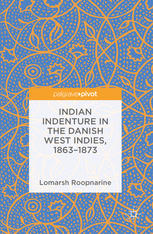

Most ebook files are in PDF format, so you can easily read them using various software such as Foxit Reader or directly on the Google Chrome browser.
Some ebook files are released by publishers in other formats such as .awz, .mobi, .epub, .fb2, etc. You may need to install specific software to read these formats on mobile/PC, such as Calibre.
Please read the tutorial at this link: https://ebookbell.com/faq
We offer FREE conversion to the popular formats you request; however, this may take some time. Therefore, right after payment, please email us, and we will try to provide the service as quickly as possible.
For some exceptional file formats or broken links (if any), please refrain from opening any disputes. Instead, email us first, and we will try to assist within a maximum of 6 hours.
EbookBell Team

4.1
100 reviewsThis book is the first comprehensive analysis of Denmark’s solitary experiment with Indian indentured labor on St. Croix during the second half of the nineteenth century. The book focuses on the recruitment, transportation, plantation labor, re-indenture, repatriation, remittances and abolition of Indian indentured experience on the island. In doing so, Roopnarine has produced a compelling narrative on Indian indenture. The laborers challenged and responded accordingly to their daily indentured existence using their cultural strengths to cohere and co-exist in a planter-dominated environment. Laborers had to create opportunities for themselves using their homeland customs without losing the focus that someday they would return home. Indentured Indians understood that the plantation system would not be flexible to them but rather they had to be flexible to plantation system. Roopnarine’s concise analysis has moved Indian indenture from the margin to mainstream not only in the historiography of the Danish West Indies, but also in the wider Caribbean where Indians were indentured.